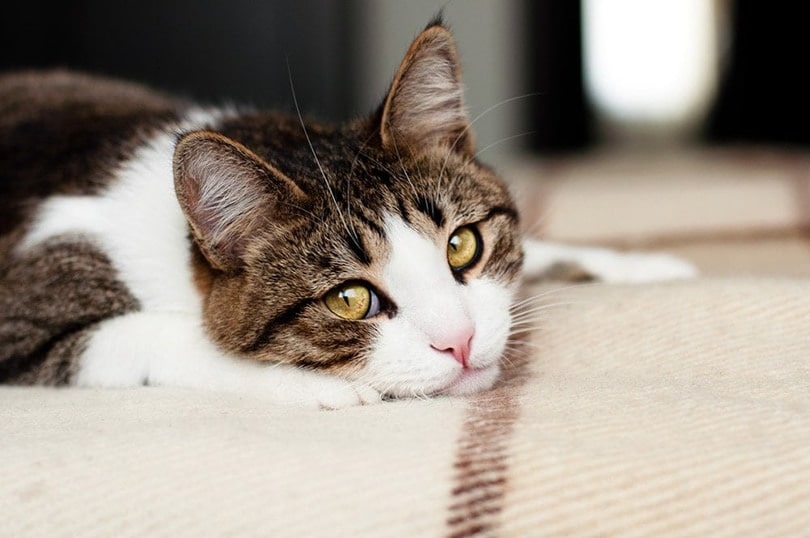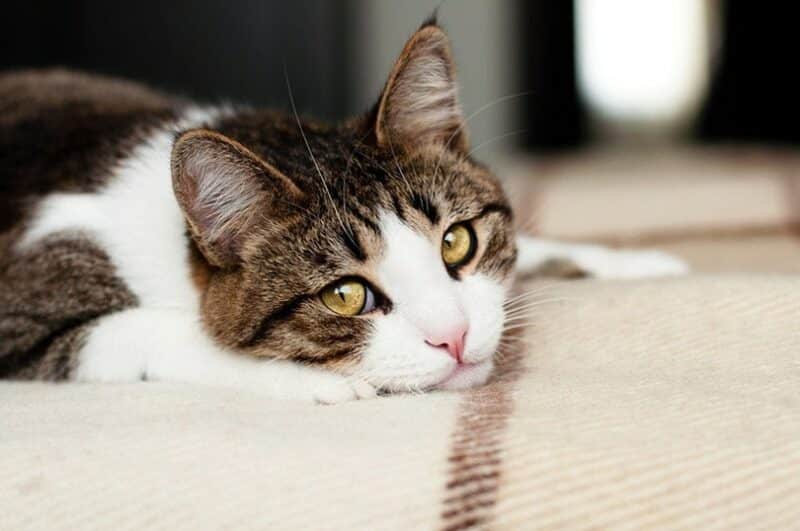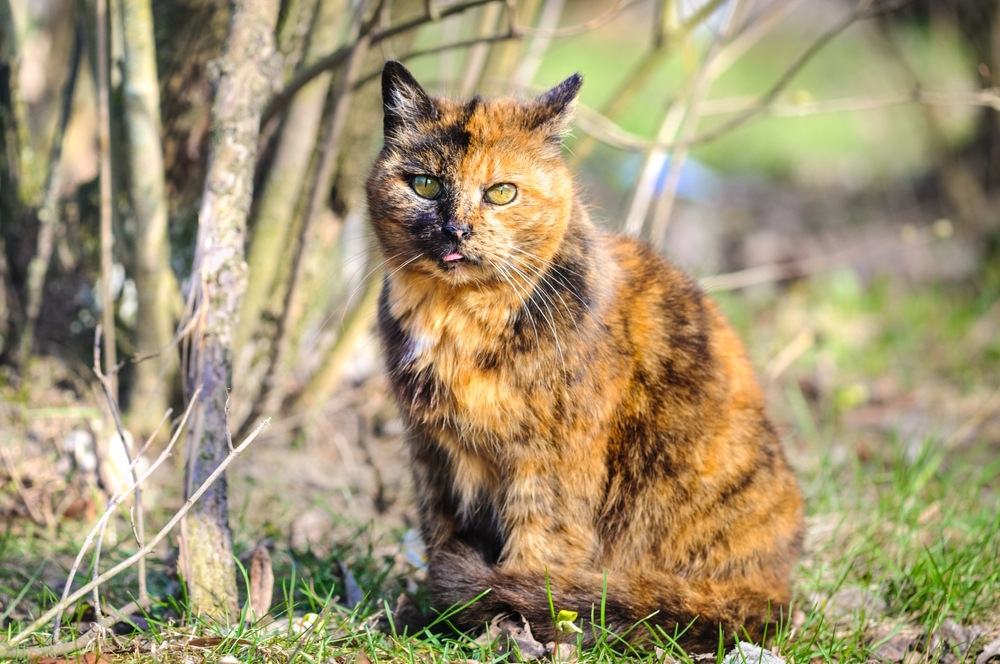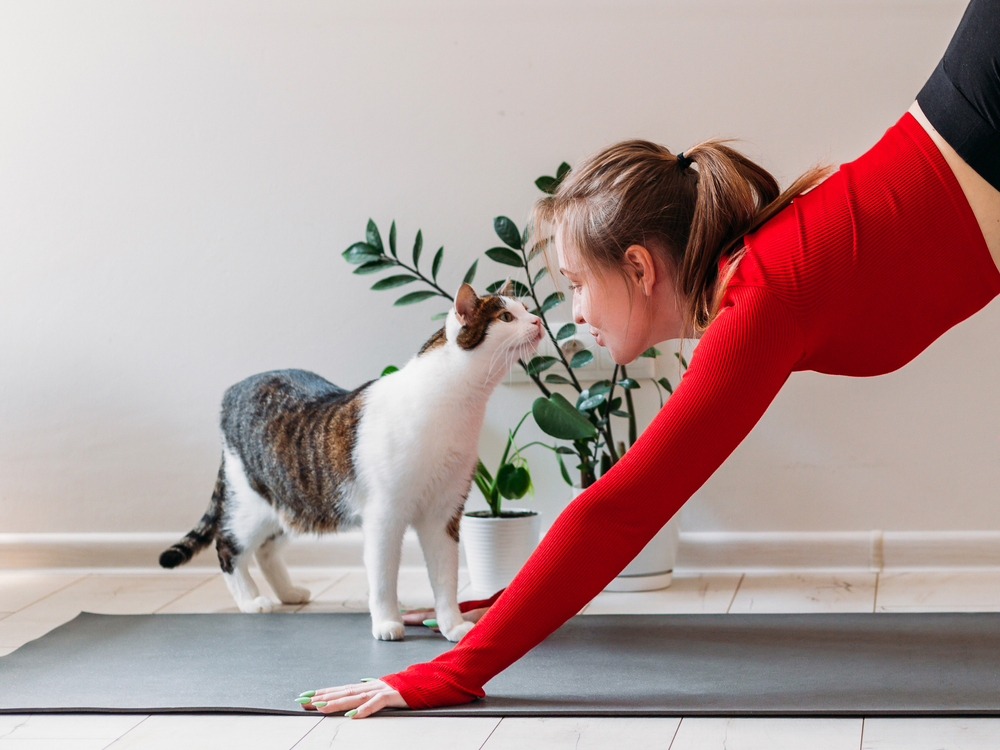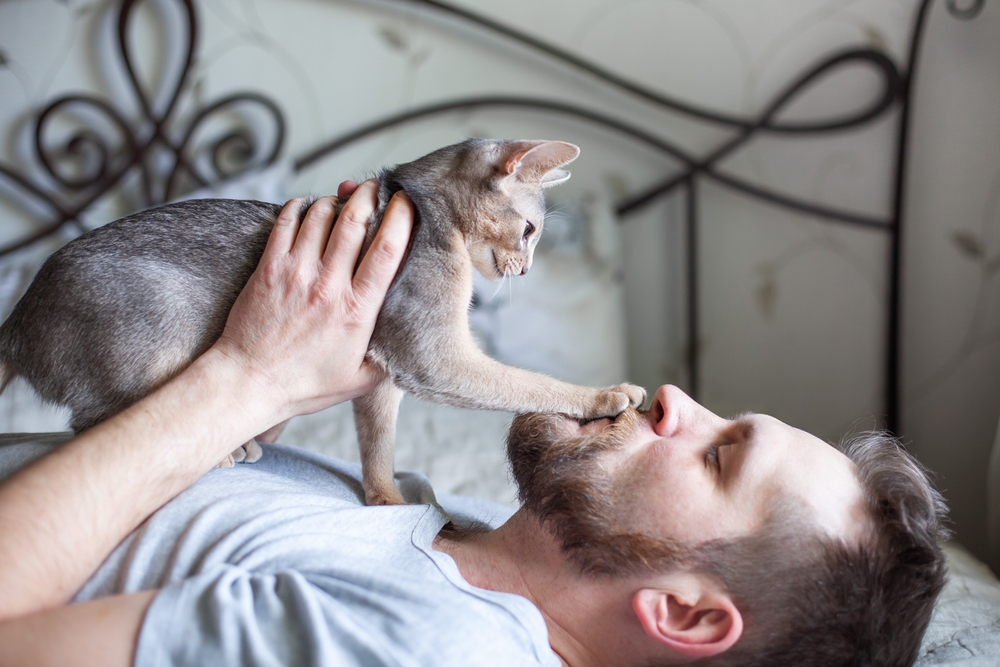Cats don’t say sorry the same way humans do, but they might show other relationship-building behaviors. They simply don’t have the same concept of apologies. Humans have a pretty complicated social system, and our social concepts do not always exist in a cat’s mind.
To apologize, our cats would have to feel guilt for their actions, understand that they hurt someone, and seek to make amends. These steps aren’t within the scope of the emotional intelligence of a cat (as far as we know). However, cats can communicate in ways that show affection that people might interpret as apologizing.
What Does Science Say?
Studying emotions and intentions in science is hard, especially when animals are involved. How do you prove why an animal was doing something without being able to ask them? Intentions are practically impossible to prove for this reason. Science may be able to determine that cats may perform certain actions after hurting their owner, but it cannot prove that these cats are apologizing.
It’s similar to the “crow funeral” phenomenon. When a crow dies, other crows will gather around the body. Early researchers attributed human emotions to these gatherings and stated that the crows were mourning. However, modern researchers are a bit more cautious about assigning human emotions to animal behaviors. For all we know, the crows just could be figuring out how the other crow died so that they don’t end up dead, too.
It’s the same with cat behavior. We need to be cautious when assigning intent to actions.
With that said, there are many behaviors that cats perform to maintain and build social bonds. If one of these bonds was harmed (through accidental or purposeful hurt, for instance), then the cat may make several attempts to repair the bond. These behaviors often include exchanging scents, which helps cats recognize felines they are amenable to.
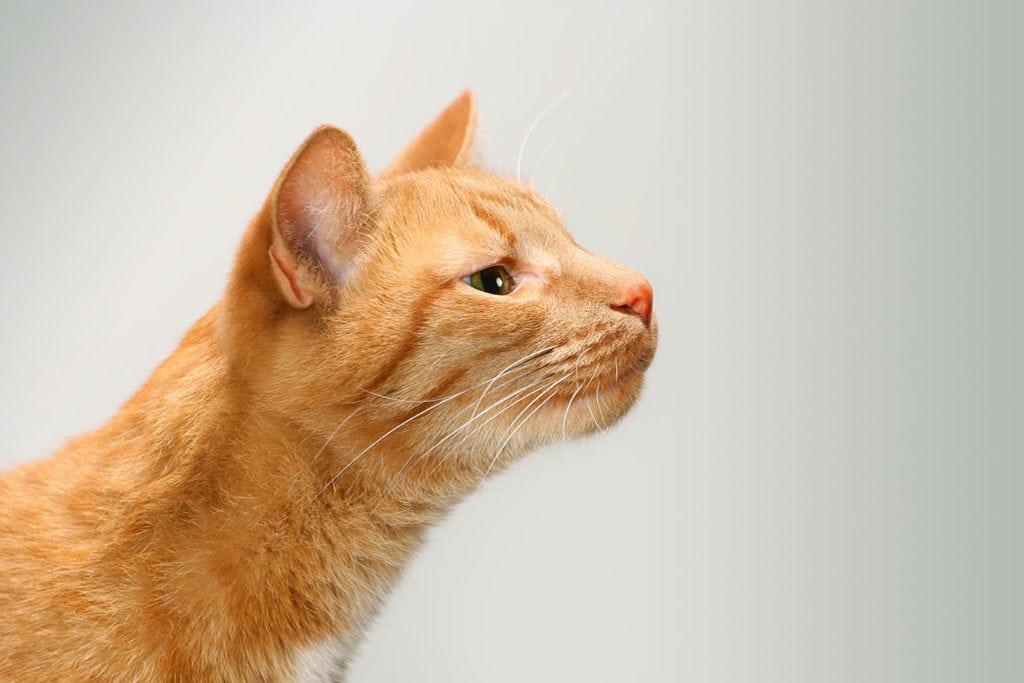
Cats explore their world a lot through smell. Therefore, if a cat smells familiarity in another cat, then that cat can typically assume the cat is a friend (assuming, of course, that they like the cat!). This behavior is how colonies of feral cats exist.
These groups are primarily female cats who recognize and don’t seem to mind each other. Intact feral males are less likely to be accepting of other cats, especially male cats. However, some male cats can form coalitions with other males; these males are then friendly with each other. Such males often rub their scent on each other.
These behaviors usually involve head butting and rubbing. Your feline has scent glands on their face, including their forehead and cheeks. Therefore, they will rub their face against you to “mark” you. (Cats also have scent glands between their toes, which is one reason they scratch on things. However, let’s hope that they aren’t using these scent glands on you.)
Cats may also reinitiate the relationship in different ways. For instance, they may simply decide to cuddle and purr. While this is enjoyable for you and your cat, it also helps them mark their scent on you. If your cat approaches you and acts like they normally do, it may be that they’re trying to reconnect with you.
Of course, we don’t exactly know why your feline is doing this. As we’ve stated, we can’t figure out the intention. But we do know that cats have the ability to recognize some emotions and therefore,1 it isn’t a stretch to assume that they do form close relationships with their owners.
How Might a Cat Apologize?
In most cases, your cat’s first reaction will be to run away. They may hide for a bit (or even days, depending on the level of anxiety they’re feeling). After that, you may find them staring at you without approaching. However, you shouldn’t consider this bad, necessarily. Cats show kindness partially by giving people space. In many cases, this is why cats like people who don’t crowd them. Your cat may apologize partially by giving you space.
However, cats may apologize in different ways, as well. For instance, your feline may just start acting like everything is normal. They may approach you and cuddle (if that’s how they normally interact).
Cats may also do a lot of purring and slow-eye blinking. Slow eye blinking is a way cats invite close physical contact. Therefore, if they blink at you slowly, it could be a sign that they want you to cuddle and pet them.
Head butting and rubbing may also be signs of an apology (if cats do, in fact, apologize). Cats have scent glands on their forehead and cheeks. By rubbing and butting their head into you, they mix their scent with yours. This is how felines express their friendship.

Conclusion
Cats don’t have the same social structures or emotions that humans have. We don’t know what cats are thinking, as we can’t exactly ask them. Intention is impossible to determine through studies (until we figure out how to read a cat’s mind, at least). Therefore, we really don’t know if they apologize.
Still, cats may display some relationship-building behaviors that may or may not be related to apologizing. Felines may attempt to cuddle or rub against you to mix your scents together. Of course, these are also behaviors that felines and humans simply enjoy, so they may not be related to apologizing.
Simply put, we simply don’t know what these behaviors mean and if cats try to apologize.
Featured Image Credit: medveda, Shutterstock

